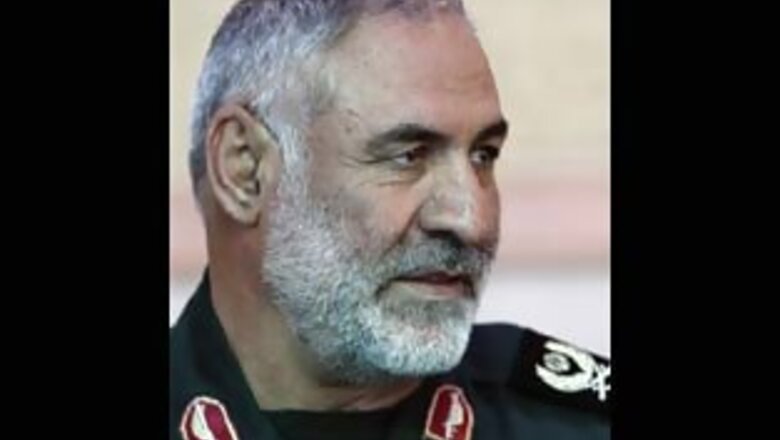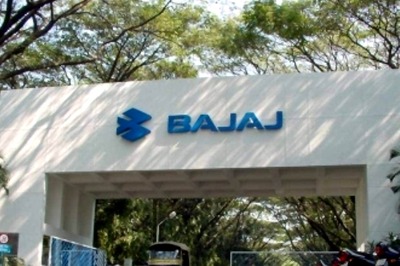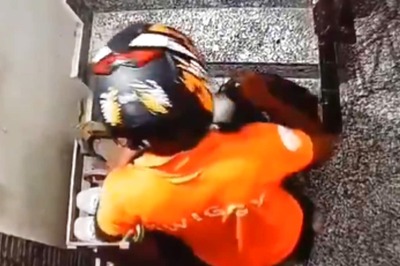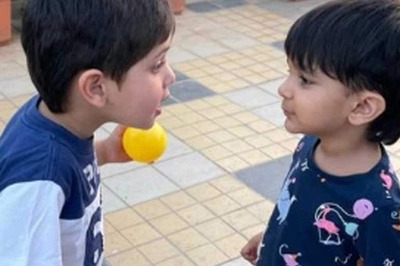
views
Tehran: A suicide bomber killed six senior Revolutionary Guards commanders, including two of its top officers, and 25 other people on Sunday in one of the boldest attacks against Iran's most powerful military institution.
The attack highlighted deepening instability in the Islamic Republic's southeast bordering Pakistan and Afghanistan, where many of Iran's minority Sunnis live and which has seen a spate of deadly bombings and other violence in the last few years.
State media said a local rebel Sunni group called Jundollah (God's soldiers) claimed responsibility for the attack, the deadliest on the elite Revolutionary Guards in recent years, which also wounded some 30 people at a meeting of tribal chiefs.
The southeastern province of Sistan-Baluchestan is the scene of frequent clashes between security forces, ethnic Baluch Sunni insurgents and heavily-armed drug traffickers.
The region has also been the focus of attacks in recent years by Jundollah, which accuses Iran's Shi'ite-led government of discrimination. Iranian officials have accused Jundollah of receiving backing from al Qaeda and the United States.
President Mahmoud Ahmadinejad said the perpetrators would be "seriously dealt with", the official IRNA news agency said.
Iran's armed forces accused the United States and Britain of involvement in the attack carried out by "terrorists" and warned of revenge, the semi-official Fars News Agency reported.
The deputy head of the Guards' ground forces, General Nourali Shoushtari, and its commander in Sistan-Baluchestan province, General Rajabali Mohammadzadeh, were among the killed.
"Rigi's terrorist group has claimed responsibility for the attack," said state television, referring to Abdolmalek Rigi, leader of Jundollah which is linked by some analysts to the Taliban in neighbouring Pakistan.
"Not in the distant future we (Iran) will take revenge ... and Baluchis will clear this region from terrorists and criminals," Fars quoted the armed forces statement as saying, referring to the inhabitants of Sistan-Baluchestan province, where the attack took place.
State television showed footage of three bodies covered with blood-stained clothing and of wounded people being taken to hospital. Glass shards and other debris were scattered at the scene of the attack.
PAGE_BREAK
Predominantly Shi'ite Muslim Iran accuses the United States of backing Jundollah to stir trouble in sensitive border areas, a charge that Washington denies. Tehran has also linked the group to the Sunni Islamist al Qaeda network.
In Washington, the United States condemned the bombing and denied it had anything to do with it.
"We condemn this act of terrorism and mourn the loss of innocent lives. Reports of alleged U.S. involvement are completely false," State Department spokesman Ian Kelly said.
Most people in Sistan-Baluchestan are Sunni Muslims and ethnic Baluchis. Iran rejects allegations by Western rights groups that it discriminates against ethnic and religious minorities.
The Revolutionary Guards is an elite force seen as fiercely loyal to Iran's Supreme Leader, Ayatollah Ali Khamenei. Its power and resources have increased in recent years. It handles security in key border areas.
The bombing and allegations of foreign involvement risk overshadowing talks between Iranian and Western officials in Vienna on Monday intended to help resolve a standoff with the West about Iran's nuclear ambitions.
"It could damage that dialogue" defence analyst Paul Beaver told Reuters by phone. He said a suicide bombing could indicate links to al Qaeda but he dismissed allegations of a U.S. or British role: "I think it is highly unlikely."
The attack is also likely to harden the resolve of the clerical and military establishment in confronting the opposition to a disputed election in the summer which saw the re-election of President Mahmoud Ahmadinejad.
Iranian opposition leader Mirhossein Mousavi said he would press ahead with efforts to reform the Islamic Republic despite a crackdown on protests after the June 12 presidential poll, his website said on Sunday.
The election plunged Iran into its deepest internal crisis since the 1979 Islamic revolution. The opposition says more than 70 people were killed as Revolutionary Guards and Islamic militia put down the protests that erupted after the poll.
Citing a witness, state television said Sunday's attack occurred when senior Revolutionary Guards officers attending a conference in the southeastern city of Sarbaz went to talk to a group of tribes people making baskets.
English-language Press TV said the suicide bomber was a tribesmen who "detonated his explosives strapped to his body".
Apart from Shoushtari and Mohammadzadeh, among those killed were also the Guards' commanders in the cities of Sarbaz and Iranshahr. Shoushtari was also a senior official of the Guards' elite Qods force.
Jundollah, which claimed responsibility for the bombing of a Shi'ite mosque in May that killed 25 people in Sistan-Baluchestan, says it is fighting for the rights of minority Sunnis in Iran.
Some analysts believe Jundollah has evolved through shifting alliances with various parties, including the Taliban and Pakistan's ISI intelligence service, who saw the group as a tool against Iran.




















Comments
0 comment